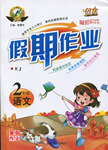题目内容
The novel is so badly written that I can hardly ______ what the writer is trying to say.
A. turn out B. make out C. let out D. try out
B
【解析】
试题分析:考查动词短语辨析。A. turn out 证明;B. make out理解;C. let out 泄漏;D. try out尝试;句意:这小说写得十分糟糕以至于我不能理解作者想说什么,根据句意选B项。
考点 : 考查动词短语辨析

练习册系列答案
 鸿图图书寒假作业假期作业吉林大学出版社系列答案
鸿图图书寒假作业假期作业吉林大学出版社系列答案
相关题目